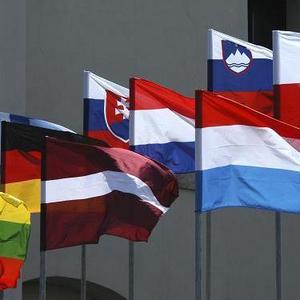EU industry 'extremely worried' by lack of antisubsidy duties

September 4, 2013
BY The European Biodiesel Board
During an extraordinary executive board meeting, European Biodiesel Board members expressed the strong worry of the EU biodiesel industry following the European Commission’s decision not to adopt yet high enough provisional antisubsidy duties on massive Indonesian and Argentinean dumped and unfair biodiesel exports to Europe.
During its recent meeting, the EBB’s executive board members were rather taken aback by the commission’s declaration that it would postpone its decision to a definitive stage. EBB is more than ever committed to assist commission trade services for demonstrating the damaging impacts of Argentinean and Indonesian aggressive market behavior, generated by differential export taxes (DETs) and resulting dumped prices on the European market.
The unfair competitiveness provided by DET policies greatly hampers the viability of the European industry, regretted Raffaello Garofalo, EBB Secretary General. The EBB strongly encourages European institutions to consider the adverse effects of DETs and the resulting dumped prices on the European industry. Since 2010, biodiesel imports from Argentina and Indonesia have been skyrocketing, reaching up to 2.5 million tons (more than 750 million gallons) in 2011 and 2012.
“In order to tackle the distorting effects of these DET schemes, the European Commission has at its disposal two different and alternative mechanisms: the antidumping and the antisubsidy instruments,” Garofalo said. “Since the future of the European biodiesel industry is at risk, we urge the commission to adopt anyhow immediate and sufficiently high countervailing duties to counter unfair massive biodiesel imports from Indonesia and Argentina.”
Advertisement
Advertisement
Every day the situation is worsening: the provisional antidumping duties imposed last May 27, fell well below the level needed to stop unfair imports. Market reports that close to 60,000 tons (more than 18 million gallons) of Argentine biodiesel entered the EU territory only at the very beginning of this summer and the situation is worsening. The same occurs for Indonesia where we are experiencing a new surge on imports. This confirms that the level of duties was not at all high enough to restrict unfair imports from Argentina and Indonesia and to remedy severe injuries suffered by the EU biodiesel industry. Since 2010, Argentina and Indonesia account for more than 90 percent of European biodiesel imports. EBB, representing the EU biodiesel industry, would like to express its strong concerns that insufficient measures would not restore the industry level playing field. If no appropriate EU countervailing measures will be approved in the next months, the EU biodiesel industry will risk disappearing to the benefit of Indonesian and Argentinean producers.
Definitive duties for antidumping and antisubsidy complaints shall be set respectively by Nov. 29 and Dec. 10 at the latest.
“European institutions have the opportunity to propose the necessary measures to protect European industry and employment,” insisted Garofalo.
Advertisement
Advertisement
Background information
In response to increased unfair biodiesel imports from Argentina and Indonesia, the EBB, representing approximately two-thirds of biofuels consumed in Europe, lodged antidumping and antisubsidy complaints to counteract export-driven policies in these countries. Both complaints lodged in 2012 intend to consider the unfair policy measures set and directly endangering the European biodiesel industry.
Export taxes are set at a different level along the supply chain: higher export taxes apply to raw materials than to final biodiesel products. This differential price is the core tool of a set of instruments that these two countries are using as a means to artificially promote exports of a finished product over the raw material. The differential export taxes (DETs) create hence an incentive to export biodiesel at an artificially lower price.
In its complaint, EBB demonstrated how DETs have a huge impact on dumped market prices and could be alleged as subsidies as they involve a financial contribution from the government of Argentina and Indonesia. In the notice of initiation of an antsubsidy proceeding of Nov. 10, the commission recognizes that “the prima facie evidence provided by the complainant shows that the volume and the prices of imported product under investigation have had, among other consequences, a negative impact on the level of prices charged and the market share held by the Union industry.”
Related Stories
The U.S EPA on July 17 released data showing more than 1.9 billion RINs were generated under the RFS during June, down 11% when compared to the same month of last year. Total RIN generation for the first half of 2025 reached 11.17 billion.
The U.S. EPA on July 17 published updated small refinery exemption (SRE) data, reporting that six new SRE petitions have been filed under the RFS during the past month. A total of 195 SRE petitions are now pending.
The USDA has announced it will delay opening the first quarterly grant application window for FY 2026 REAP funding. The agency cited both an application backlog and the need to disincentivize solar projects as reasons for the delay.
CoBank’s latest quarterly research report, released July 10, highlights current uncertainty around the implementation of three biofuel policies, RFS RVOs, small refinery exemptions (SREs) and the 45Z clean fuels production tax credit.
The U.S. EPA on July 8 hosted virtual public hearing to gather input on the agency’s recently released proposed rule to set 2026 and 2027 RFS RVOs. Members of the biofuel industry were among those to offer testimony during the event.
Upcoming Events










